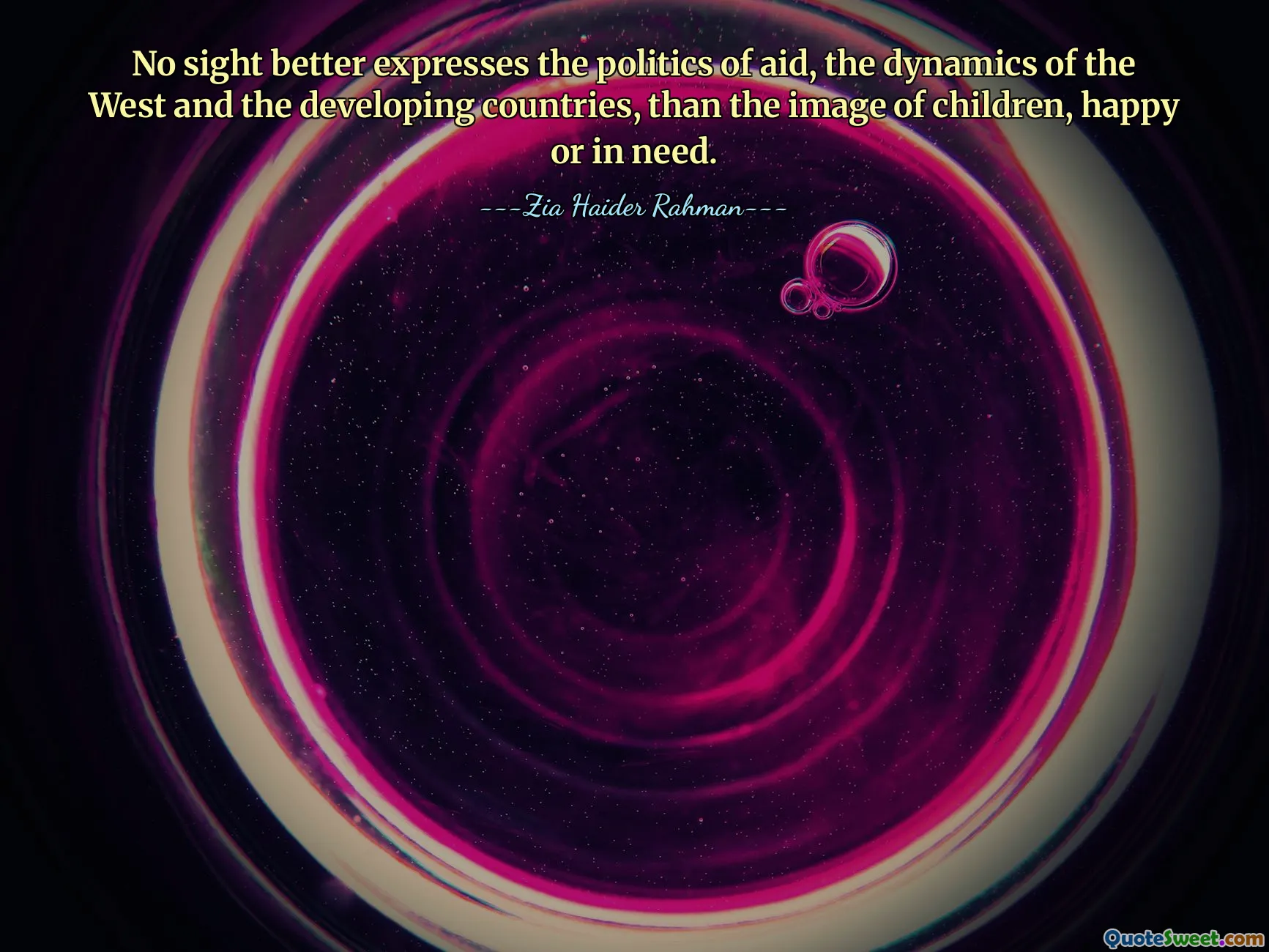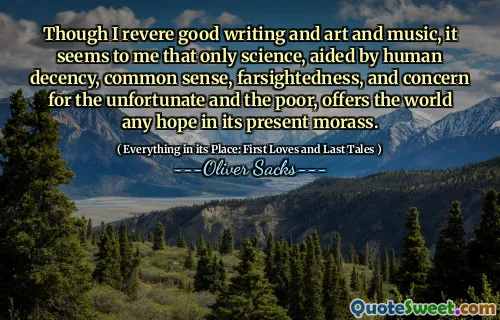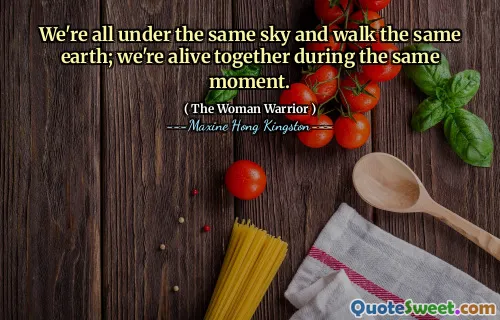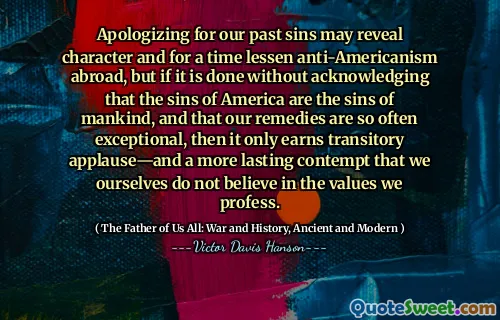
No sight better expresses the politics of aid, the dynamics of the West and the developing countries, than the image of children, happy or in need.
This quote poignantly captures the complex relationship between the West and developing countries through the powerful symbol of children. The image of children—whether joyfully thriving or visibly in need—serves as a visceral representation of the politics surrounding international aid. It reduces intricate geopolitical and economic interactions to something deeply human and relatable. Children embody innocence and vulnerability, and their condition often reflects broader systemic issues such as inequality, poverty, exploitation, and the uneven distribution of resources.
By focusing on this image, the quote suggests how humanitarian aid often becomes a visual and ethical shorthand through which global power dynamics are understood and negotiated. Western nations position themselves as benefactors, while developing countries are framed as recipients or victims. This dynamic can sometimes perpetuate paternalistic attitudes, overshadowing the agency and aspirations of those receiving aid. Additionally, it underscores how aid is not just about charitable giving but is also embedded in political strategy, diplomacy, and influence.
Moreover, the quote prompts us to reflect on the narratives surrounding development and progress. It challenges the observer to consider what lies behind the images - the policies, historical contexts, and economic disparities that necessitate aid. It invites a critical awareness of how aid is portrayed and consumed globally, and how these portrayals influence public opinion and policy decisions.
In embracing the emotional power of children's images, the quote reveals the tension between humanitarian impulses and political motives. It encourages a more nuanced understanding that goes beyond surface impressions, urging us to think critically about the structures that put children "happy or in need" in their situations in the first place.
---Zia Haider Rahman---











